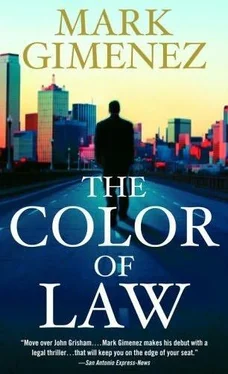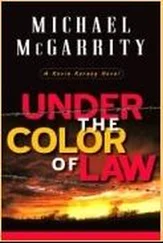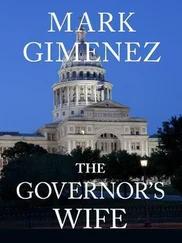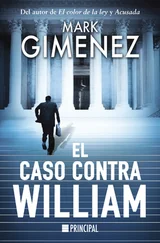Mark Gimenez - The Color of Law
Здесь есть возможность читать онлайн «Mark Gimenez - The Color of Law» весь текст электронной книги совершенно бесплатно (целиком полную версию без сокращений). В некоторых случаях можно слушать аудио, скачать через торрент в формате fb2 и присутствует краткое содержание. Жанр: Криминальный детектив, на английском языке. Описание произведения, (предисловие) а так же отзывы посетителей доступны на портале библиотеки ЛибКат.
- Название:The Color of Law
- Автор:
- Жанр:
- Год:неизвестен
- ISBN:нет данных
- Рейтинг книги:3 / 5. Голосов: 1
-
Избранное:Добавить в избранное
- Отзывы:
-
Ваша оценка:
- 60
- 1
- 2
- 3
- 4
- 5
The Color of Law: краткое содержание, описание и аннотация
Предлагаем к чтению аннотацию, описание, краткое содержание или предисловие (зависит от того, что написал сам автор книги «The Color of Law»). Если вы не нашли необходимую информацию о книге — напишите в комментариях, мы постараемся отыскать её.
The Color of Law — читать онлайн бесплатно полную книгу (весь текст) целиком
Ниже представлен текст книги, разбитый по страницам. Система сохранения места последней прочитанной страницы, позволяет с удобством читать онлайн бесплатно книгу «The Color of Law», без необходимости каждый раз заново искать на чём Вы остановились. Поставьте закладку, и сможете в любой момент перейти на страницу, на которой закончили чтение.
Интервал:
Закладка:
“And did that end your involvement with this case?”
“Yes, sir, other than waiting for the car to be towed to impound.”
“And what time was this?”
“Approximately one P.M.”
“Thank you, Officer Castille. No further questions.”
Judge Buford turned to Scott, who said, “No questions, Your Honor.”
“Mama, you okay?”
Instead of going out each day for lunch, the defense team had decided to eat lunch with the defendant. So they were now in the small bare conference room, eating the ham and cheese sandwiches the girls had made that morning. Scott pulled his coat off the chair back and wrapped it around Shawanda’s shoulders. His client was having chills again.
“Yeah, baby.”
“Why can’t you have your medicine?”
“Don’t know.”
“Mama, the jury people keep looking over at me.”
“That ’cause you so pretty.” She warmed and she said, “How the trial going, Mr. Fenney?”
“Nothing much this morning, Shawanda.”
“Mama, that Mr. Burns, he’s a little prick. He stood right up there and lied to those jury people. He told them you killed that McCall boy, just like he meant it.”
“He did, baby.”
After the lunch break, Ray Burns, the little prick, called Sergeant Roland James of the Highland Park Police Department as the prosecution’s second witness. Sergeant James was one of those middle-aged cops who had long ago made his peace with the fact that he wasn’t going to make a difference, so he would just ride out his shift until his pension kicked in. He testified that he had been on duty on the afternoon of Sunday, June 6, and had taken the call from the Dallas PD regarding the McCall Mercedes-Benz. He had arrived at the McCall estate at one-thirty P.M.
“Sergeant James,” Ray Burns said, “when you arrived at the McCall residence, did you notice anything out of the ordinary?”
“No, sir-except that the front gates were open.”
“What did you do?”
“I drove in, went up to the front door, and rang the doorbell several times. No one answered. I tried the door, but it was locked. So I walked around to the back of the house and found the back door open. I stepped inside the residence and called out, but no one answered.”
“What did you do then?”
“I commenced searching the residence, the ground floor first. Nothing was disturbed, and I found no one. I walked up the stairs to the second floor, started on the west wing. I found the body in a bedroom in the east wing.”
“What body was that?”
“White male, naked, gunshot wound to the head, lying on white carpet soaked in blood.”
“Was the body that of Clark McCall?”
“Yes, sir.”
“You knew that from having met Clark McCall on a prior occasion?”
“Yes, sir.”
“Did you check the body for vital signs?”
“No, sir.”
“Why not?”
“From the appearance of the body, there was no question that the victim was dead and had been for some time. I didn’t want to contaminate the evidence.”
“And was that in accordance with your police training?”
“Uh, well, no, sir. That was in accordance with O.J.’s trial. They accused those L.A. cops of contaminating the evidence. I wasn’t going there.”
“So what did you do?”
“I stepped out of the room and called headquarters, talked to the chief. He called in the Feds. The FBI.”
“Thank you, Sergeant James. No further questions.”
Scott stood and went to the podium.
“Sergeant James, why did your chief call in the FBI?”
“He figured they had jurisdiction.”
“Over a murder?”
“The victim was a federal official.”
“You knew that at the time, when you were standing in his bedroom door?”
“Well, no, sir, I didn’t know that. I guess the chief did.”
“But you knew who the victim was?”
“Yes, sir.”
“And how did you know Clark McCall?”
“Well, Clark McCall, he, uh, he had a history with us.”
“A record?”
“Yes, sir.”
“How long have you been with the Highland Park PD?”
“Twenty-three years this December.”
“And had you ever personally arrested Clark McCall?”
“Yes, sir.”
“On how many occasions?”
“Three that I recall.”
“For what?”
“Disturbing the peace.”
“What was he doing?”
“Drinking in public, when he was in high school.”
“Is that all?”
“Drugs.”
“Is that all?”
“One time he was standing naked in the SMU fountain.”
“Was he ever arrested for a sexual crime?”
“Not that I’m aware of, sir.”
“Was a complaint ever filed against Clark McCall alleging a sexual crime?”
“Not that I’m aware of.”
“So, bottom line, your chief called in the Feds because he knew the victim was the son of Senator McCall?”
“Yes, sir. And because we’d never worked a homicide in Highland Park.”
The next witness for the prosecution was the FBI agent first on the scene, Agent Paul Owen, fifty, ex-military with a soldier’s bearing and haircut.
“Agent Owen,” Ray Burns said, “you arrived at the McCall residence at what time?”
“Approximately two-thirty P.M.”
“And what did you do?”
“I entered the residence, which Highland Park PD had secured, and went upstairs to the crime scene. I observed the victim’s body lying on the floor. I commenced documenting the crime scene, and I called in the Evidence Response Team. They arrived at approximately three P.M.”
“You were in charge of the investigation?”
“Yes, sir.”
“And did you process the crime scene?”
“Yes, sir, we collected the evidence.”
“And what evidence did you collect?”
“We cut out the carpet under and surrounding the body to obtain blood samples. We collected hair next to the body, fingerprints, various pieces of clothing, personal effects, the sheets off the bed, drinking glasses, a. 22-caliber bullet imbedded in the floor, a. 22-caliber pistol, and the body.”
“And what did you do with this evidence?”
“The body went to the Dallas County medical examiner. The rest of the evidence went to the FBI lab at Quantico, Virginia, for analysis.”
“Did you conduct a luminol test to locate blood elsewhere in the room?”
“Yes, sir, we did.”
“And did you find blood elsewhere?”
“No, sir.”
“So the victim died where he was found?”
“Yes, sir. The body had not been moved.”
“Did you immediately run a check on the fingerprints?”
“Yes, sir, we did that in Dallas.”
“And did you get a match?”
“Yes, sir. The fingerprints on one of the drinking glasses and the pistol belonged to the defendant.”
“Shawanda Jones?”
“Yes, sir.”
“What did you do then?”
“We obtained an arrest warrant for Shawanda Jones.”
“Did you make the arrest?”
“No, sir. I sent Agent Edwards.”
“What did you do next?”
“I called next of kin.”
“Senator McCall?”
“Yes, sir. I informed the senator that his son had been murdered in their residence.”
“And what did Senator McCall say?”
“He asked how his son had been killed.”
“And did you tell him?”
“Yes, sir.”
“All right. Back to the crime scene, Agent Owen. Were photographs taken of the crime scene?”
“Yes, sir.”
Ray Burns stepped over to Scott and handed him the four photographs he would show the jury. The crime scene photos had been the subject of heated pretrial arguments over their prejudicial effect on the jury. Burns wanted to introduce two dozen photos, but the judge had approved only these four, one of which was particularly graphic. Scott handed the photos to Karen, who was sitting next to him. She inhaled sharply. He forgot she hadn’t seen the photos. Which reminded Scott; he twisted in his chair, caught the girls’ attention, and gestured that it was time for them to lower their eyes. He knew the photos were coming and had discussed it with them on the drive over that morning. He told them to stare down at their feet until the photo show was over.
Читать дальшеИнтервал:
Закладка:
Похожие книги на «The Color of Law»
Представляем Вашему вниманию похожие книги на «The Color of Law» списком для выбора. Мы отобрали схожую по названию и смыслу литературу в надежде предоставить читателям больше вариантов отыскать новые, интересные, ещё непрочитанные произведения.
Обсуждение, отзывы о книге «The Color of Law» и просто собственные мнения читателей. Оставьте ваши комментарии, напишите, что Вы думаете о произведении, его смысле или главных героях. Укажите что конкретно понравилось, а что нет, и почему Вы так считаете.












